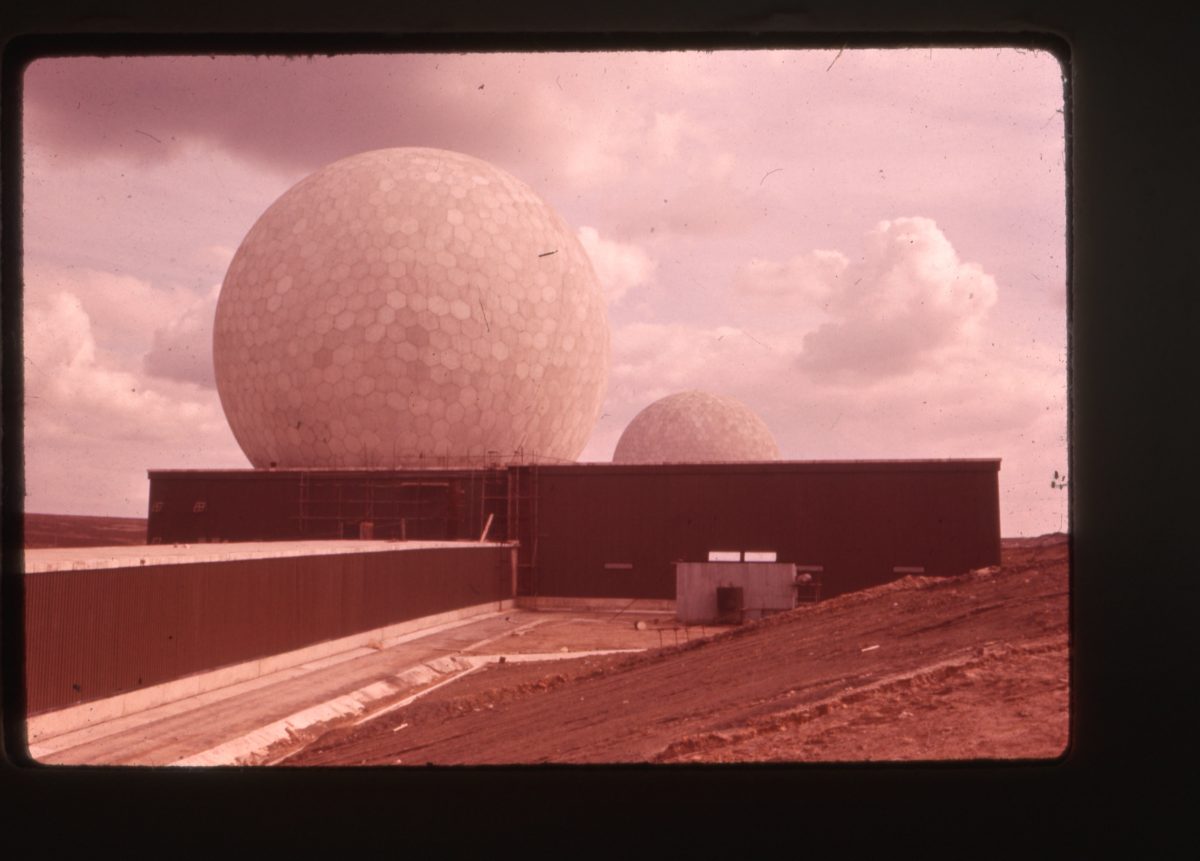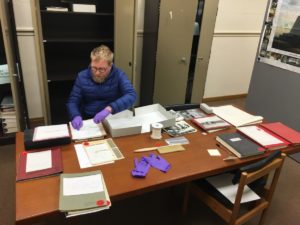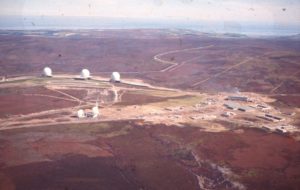Nestled on the North Yorkshire moors, the Fylingdales golf balls were an iconic sight until the mid-90s. These large, white radar domes dominated the landscape from 1963 to 1994, when they were demolished.
This once well-known sight which many will remember, is among landmarks across our region being celebrated at events organised by Teesside University researchers for this year’s Being Human Festival, which celebrates the humanities with a wide variety of events taking place across the country.
Dr Michael Mulvihill spoke to Talking Teesside about a few of the Being Human Festival events which focus on the geodesic domes which surrounded the radar dishes at RAF Fylingdales.
What were the Fylingdales golf balls?
The golf balls were significant landmarks on the North York Moors from the early 1960s until they were demolished in the 1990s for the current pyramid shaped phased array radar.
In the original iteration of RAF Fylingdales, the domes surrounded three 160-ton radar dishes, which rapidly swept the sky looking for signs of missile attack. RAF Fylingdales provided at least a four-minute warning of nuclear attack, which itself became a visceral lived experience of the Cold War.
What sparked your interest in them?
I first became aware of RAF Fylingdales during a time that has become known as the Euromissile Crisis, or the War Scare of 1983. I can recall trying to run home from school within the four-minute attack warning. So, it is sometimes an uncanny experience to reflect on how my childhood anxiety about nuclear war has led me on this research path and establish a close working relationship with RAF Fylingdales.
This includes establishing the Fylingdales Archive at RAF Fylingdales, which charts a social history of early warning and space heritage in North Yorkshire. And sits in my research interest that explores how nuclear deterrent and space technologies shape lived and cultural experience.
I am currently using oral history to map space and computer systems engineering experience concentrated in the North-East region, because of RAF Fylingdales.
What can people expect at Being Human events about the domes?
An opportunity to share and explore a living history of the golf balls. They have huge significance for many people living in the region – not just for their ominous geopolitical implications, but also in providing a sense of place that includes memories of family holidays, or a sense of belonging to the North York Moors. They are/were a significant part of world heritage, being designed by the famous architect Richard Buckminster Fuller for the wild weather on the moors.
The Remembering the Golf Balls event at Teesside University on Saturday 9 November will revisit architect Buckminster Fuller’s original experimentation with geodesic domes at Black Mountain College of Art in 1948. The structures were built out of common materials, and visitors will work with artists and interior architects to get hands-on experience of building these influential structures.
The Geodesic Sounds event at MIMA is part of an ongoing collaboration with Novello Award-winning field recordist David de la Haye. We have been building the Fylingdales Sound Archive, and the geodesic dome installation will premiere a new immersive sound composition made from the sounds of the North York Moors and sounds of space tracking operations.
Finally for Remembering the Golf Ball we are inviting people to come along to the Thornaby Council Archives and share their memories and experiences of RAF Fylingdales and its famous radomes.
What do you enjoy most about your work?
I enjoy revealing previously unknown space histories. For example, the radars in the dome were designed by the same engineers that built the navigation equipment on the Apollo Moon Lander.
But above all it is even more thrilling to learn from the public about their experience of RAF Fylingdales or relatives who worked there. So, I am really looking forward to the events in our Being Human Festival.
Teesside University is one of just five universities chosen as a hub for this year’s Being Human Festival. This nationwide festival celebrating the humanities – which takes place from Thursday 7 November to Saturday 16 November – and is led by the School of Advanced Study, University of London, with support from Research England, in partnership with the Arts and Humanities Research Council and the British Academy.
Dr Mulvihill is a Vice Chancellor Research Fellow in the School of Social Science, Humanities and Law, and is part of Teesside University’s Space Research Cluster. Additionally, he is a member of the British International Studies Association Astropolitics Working and has had several advisory roles to UK Government on social issues relating to outer space
- All images courtesy of The Fylingdales Archive
- Find out more about Teesside University’s involvement in Being Human Festival
- Being Human Teesside University events
- Fylingdales Archive



